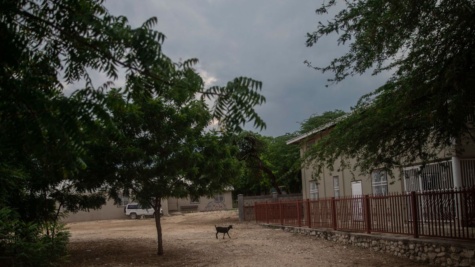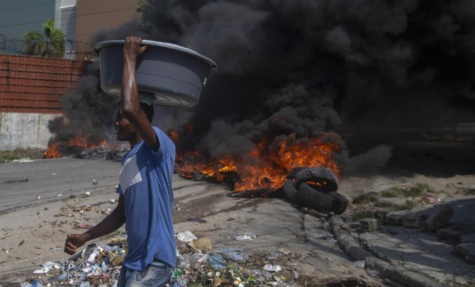
Austin Ashizawa | Student Life Editor
October 22, 2021
On October 16, 2021, 17 Christian missionaries were abducted in Haiti. The group, consisting of 16 Americans and one Canadian, was affiliated with the outreach organization known as Christian Aid Ministries. Through it, groups of conservative Anabaptists (such as Amish and Mennonites) have been able to distribute basic necessities such as food, water, and clothing to impoverished populations. Since the nonprofit’s inception, its overall reach has been expanded to include such regions as the island of Haiti.
This trip to the island was meant to follow the same routine: help others in need (this time by constructing houses), and then return home. But regardless of the missionaries’ benevolent intentions, Haiti hasn’t exactly been the safest place to be in recent months. Gang violence and poverty have ravaged the country for years, but when Haitian President Jovenel Moïse was assassinated in July of 2021, the country erupted into full-blown anarchy. Hundreds of locals have reported on the appalling conditions that they are currently facing, with large, powerful gangs now completely dominating cities, extreme political instability, and complete devastation in many areas following a recent earthquake. “The current situation in Haiti is miserable and should never be an instance people have to live through,” senior Trevor Pham said. “The people of Haiti deserve to live in a country where they can be safe and free.”
But perhaps what is most disturbing about the people’s plight is what has been exemplified in this terrifying incident. Many Haitians live in terror of kidnappings, and in some of the most dangerous areas, even walking outside presents risks. These particularly dodgy regions are controlled by violent and brutal gangs, and in the case of the hostage missionaries, the victims ventured deep into an area that a gang known as the 400 Mawozo was notorious for occupying.
As many escapees, these kidnapping attempts are sudden and unexpected. Gang members quickly surround the targets with guns drawn, and if said target is in a vehicle, tires are often slashed to prevent escape. (grossmancapraroplasticsurgery) Captured individuals are then held for ransom, and as expected, the money that is gained is used for anything but charity.

And it’s for this reason that the FBI is having such difficulty negotiating a solution. Shortly after the abduction, an unknown representative of the 400 Mawozo gang contacted a leader of the ministry group, laying out the terms of ransom. The group is demanding $1 million per person, $17 million total in order to release every hostage, yet we can’t simply give them the money and walk away with clean hands. After all, these gangs are likely to put the money towards more armaments to use against rival gangs (and to spur on more successful abductions). The entire situation is delicate, and the FBI is attempting to think about the larger implications of their decision.
This dilemma has also pulled the entire world into Haiti’s ongoing struggle. Prior to the kidnapping, many individuals had only heard a passing comment about the conditions in the country. “I didn’t actually know much about it,” senior Jessika Ephraim said. “I’m not normally very tuned into the news of foreign countries.” Yet the problems were growing more and more extreme, with just over 328 reported kidnappings in the first 8 months of 2021 compared to just 234 in the entirety of 2020.
Now, the problems have been brought front and center amidst the attempts to free the captives, and opinions differ greatly regarding what should be done. Many Haitians are attempting to use the new coverage to protest for change, with many workers going on strike to protest the government’s acquiescence of violence and fear throughout the country.
“I think anyone who is trying to change things for the better in their life and the well-being of their country is justified,” Ephraim said. But as far as the role that other countries may have to play in the situation, many people wish to abstain from conflict.
“In many historical cases, involvement creates future problems,” Ephraim explained, “but countries should be prepared to aid if needed.” Others have expressed a similar concern, remarking that foreign countries have an obligation to participate in some way. “They should help to evacuate the citizens, ” Pham said. “But then the problem is, where do the people go?”
The 400 Mawozo has been warned about potentially harming the hostages, but on Thursday afternoon, the situation grew much more troubling. Wilson Joseph, whom Haitian officials believe to be the leader of the gang, escalated the situation by threatening to kill the hostages if the captors don’t get what they want. It is unclear how the FBI and other law enforcement organizations will respond to this disturbing new development, but for now, all we can do is what Christian Aid Ministries has been encouraging the public to do all along: pray and hope for a positive outcome.

Leave a Reply